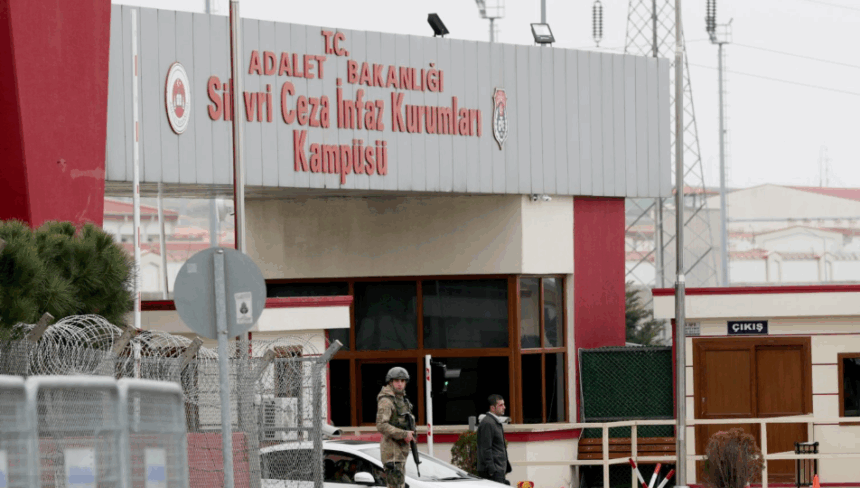A majority of Turkish citizens support the idea of a general amnesty, according to a new nationwide poll released just as Ankara renews its peace efforts with the outlawed Kurdistan Workers’ Party (PKK) and faces growing pressure over the country’s severely overcrowded prison system.
The survey, conducted by the ORC Research Company between August 1 and 3, polled 2,400 people across 18 provinces. Respondents were asked whether they support a general amnesty—a legal mechanism that can reduce or eliminate sentences for certain crimes.
The findings show that 54.1% of Turks are in favor of such an amnesty, while 36.9% oppose it. Another 9% remain undecided.
The poll results come at a critical time: Turkey’s prison population has surged beyond capacity, and political momentum is building behind a potential resolution to the decades-long Kurdish conflict.
What a General Amnesty Means
Under Turkish law, a general amnesty is a parliamentary measure that nullifies convictions for specific offenses. It cancels ongoing prosecutions, clears sentences, and removes convictions from criminal records. These measures are typically framed as efforts to promote national reconciliation, reduce social tension, or relieve systemic strain.
A Prison System at Breaking Point
Turkey’s prison crisis has deepened over the past two decades, with the inmate population rising sharply since 2005. The situation worsened during the COVID-19 pandemic, prompting the government to enact a 2020 early release law. However, the legislation excluded political prisoners—including opposition politicians, journalists, lawyers, academics, and rights defenders convicted under Turkey’s contentious anti-terror laws.
As of July 2024, the total number of inmates reached 342,526, far exceeding the official capacity of 295,328. By February 2025, that number rose to 392,456, despite a modest expansion in capacity to 299,940—a 30% overage.
Human rights organizations have long condemned Turkey’s use of vague anti-terror laws, overreliance on pretrial detention, and the politicization of prosecutions.
Peace Talks with the PKK Revived
The debate over amnesty is also linked to a major shift in the country’s Kurdish policy. Last October, Nationalist Movement Party (MHP) leader Devlet Bahçeli, a key government ally, called on jailed PKK leader Abdullah Öcalan to urge the group’s disarmament. In February 2025, Öcalan responded with a historic message calling on the PKK to lay down arms and dissolve.
The group complied, and a symbolic disarmament ceremony involving 30 militants took place in northern Iraq last month.
A new parliamentary commission tasked with advancing Kurdish reconciliation held its first session earlier this week. While it lacks legislative power, the commission is expected to influence political consensus. Whether it will recommend a general amnesty—including for former PKK members—remains unclear.
Public Awareness and Political Divides
Despite the significance of the issue, 44.8% of respondents said they were unaware of their preferred political party’s position on a general amnesty. Only 55.2% said they were informed.
Politically, views on amnesty vary. The ruling Justice and Development Party (AKP) has publicly stated that amnesty is not on its current agenda. However, leaders from both the MHP and the Republican People’s Party (CHP) have indicated openness to revising criminal enforcement laws, particularly the Turkish Penal Code (TCK) and Code of Criminal Procedure (CMK).
Erdoğan Leads on Amnesty Issue
When asked which political figure they trusted most on the issue, respondents ranked President Recep Tayyip Erdoğan first, with 44.7% support. He was followed by MHP leader Bahçeli at 28.7% and DEM Party Co-chair Tuncer Bakırhan at 20.6%.
The DEM Party, successor to the pro-Kurdish HDP, has played a central role in facilitating dialogue with Öcalan, often serving as a go-between for his communications with the Turkish government. Many of its former leaders remain jailed on charges of alleged links to the PKK—a lingering issue in the broader reconciliation effort.
A Long History of Controversial Amnesties
Turkey has seen several amnesty proposals and enactments over the years, often following periods of political turmoil. Past efforts have been polarizing, depending on which offenses or groups were included.
Supporters of a new amnesty argue it would not only ease the burden on the prison system but also serve as a symbolic gesture to support peace and national healing. Critics, however, fear it could open the door to impunity for politically connected individuals or undermine justice for victims.
As Turkey balances the need for legal reform, reconciliation, and prison relief, the path forward remains politically fraught. But with public support leaning toward clemency, and peace talks reshaping the national conversation, a general amnesty may soon move from debate to decision.



